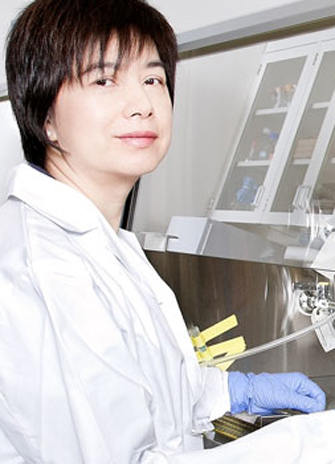Professor and York University Research Chair Chun Peng received $780,000 from the Canadian Institutes of Health Research (CIHR) to fund a new project associated with her ongoing research into pre-eclampsia, a pregnancy disorder with a profound impact on maternal and fetal health.

The grant funds a project titled “NLRC5 isoforms in placental development and pathogenesis of pre-eclampsia,” part of Peng’s long-term research goal to better understand pre-eclampsia, which usually develops after 20 weeks of gestation and is characterized by high blood pressure, as well as damage to liver, kidneys or other organs. It is the leading direct cause of maternal and fetal death in the world, with over 75,000 pregnant women and 500,000 infants dying from it each year, according to the Centers for Disease Control and Prevention.
Even if someone survives the disease, it can lead to negative effects on the mother and fetus health during pregnancy, and can have lifelong negative impacts on cardiovascular health for both. The causes of pre-eclampsia are not fully understood, but it is known that abnormal placental development – in particular, the insufficient invasion of placental cells into the uterus to carry out the remodelling of the uterine blood vessels – is a major contributing factor.
The new study builds upon findings from a previous project where Peng and colleagues identified two truncated isoforms of a protein called NLRC5 in human placenta. Preliminary results suggest that these NLRC5 isoforms play important roles in regulating placental development, and they may contribute to the pathogenesis of pre-eclampsia. In this study, her lab will collaborate with researchers from Mount Sinai Hospital and Toronto General Hospital to further examine how NLRC5 exert their functions in the placenta and to determine if their over-expression will lead to the development of pre-eclampsia-like symptoms.
“This project will allow us to understand more of how placenta development is regulated during pregnancy and how the abnormal levels of NLRC5 isoforms may contribute to the development of pre-eclampsia,” says Peng. “We really hope that this can give us some clues on whether a new strategy could be developed to either prevent or treat pre-eclampsia.”
Peng, who had her York Research Chair in Women’s Reproductive Health renewed in 2021, has been conducting research to better understand pre-eclampsia since 1998, and has received several previous CIHR grants – collectively amounting to nearly $3.5 million – to study the disorder.
